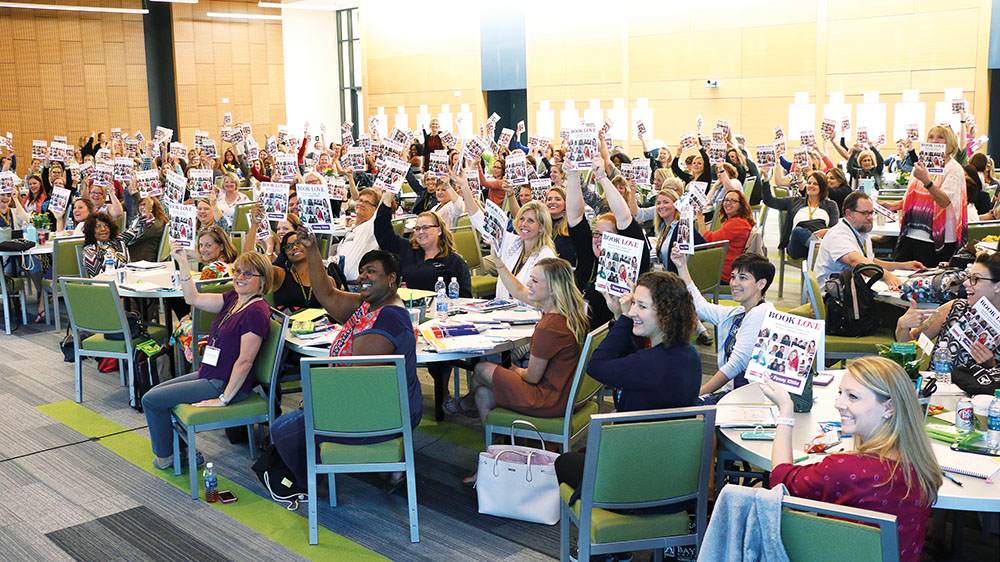Summer Reading
Cheers erupted from 250 teachers at the announcement of another “Oprah Moment” (book giveaway) at the Baylor Summer Literacy Conference. Baylor School of Education faculty members Dr. Barbara Purdum-Cassidy and Margaret Thomson wheeled out wagons full of books for the crowd. At the second annual conference, the 4th-12th-grade reading teachers spent three days learning from leading authorities on literacy education and picking up ideas for practical implementations in the classroom, all while experiencing networking and conference perks — such as Oprah Moments.
Purdum-Cassidy, clinical assistant professor and coordinator for the elementary program in the Department of Curriculum & Instruction (C&I), and Thomson, senior lecturer in C&I, are co-directors for the Summer Literacy Institute. They launched the conference last year to provide practical assistance for teachers. While the speakers and educational content are worth the price of admission, the engagement and connection between teachers are also highlights of the conference, they said.
2017 Summer Literacy Conference Speakers
Kylene Beers: Advisor at Columbia University, author of "When Kids Can't Read"
Penny Kittle: Teacher and Instructor at the University of New Hampshire Summer Literacy Institute, author of "Book Love"
Lester Laminack: Professor emeritus, Western Carolina University, author of "Writers ARE Readers"
Bob Probst: Professor emeritus, Georgia State University, author of "Reading Nonfiction" and "Response and Analysis"
Linda Rief: Teacher at the University of New Hampshire Summer Literacy Institute, author of "Read Write Teach"
Conference speaker and author Penny Kittle said, “It isn’t just the speakers, but the fact that you’re sitting at a table with all these educators who are in the struggle with you and who are searching for answers. Teachers are definitely empowered to do new things.”
Cindy Boney, Belton ISD coordinator of secondary ELAR, said, “The Summer Literacy Institute is important because it reignites the passion for teachers about why we got into education — to foster that love of reading and writing in our students.”
Purdum-Cassidy said, “These speakers are not just authors, but they are experienced teachers themselves, who have research behind their practices.”
During one session, Kittle explained her March Madness bracket for poetry. She divides students into groups, and each group picks one poem and creates a presentation about it. Poems are then pitted against one another, as students share their analyses to garner votes toward their poem until the “best” poem wins — harnessing the spirit of competition while polishing analysis and persuasion skills.
Each year, the speakers build on general themes about critical issues in reading education, techniques for engaging students with classroom texts and spurring creative thinking through the power of literacy. This strategy introduces first-time attendees to new literacy techniques, while reinforcing those concepts for returning teachers.
“It’s really beautiful to come back to a conference where the structures they’re hitting are consistent,” said Beth Brannon, secondary ELAR curriculum specialist from Amarillo ISD. “You can come back with stories of how it actually went in class, the responses from students and the struggles you had as a teacher.”
— by Molly Meeker
